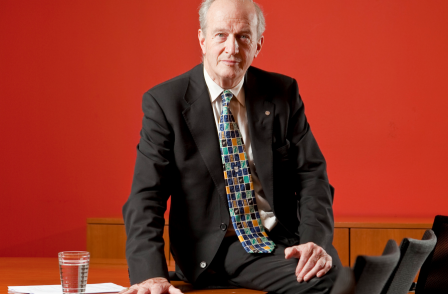
Press Complaints Commission (PCC) chairman Lord Hunt said he hoped to see a new form of press self-regulation set up and at work by early next year.
The former cabinet minister told MPs he was organising a transition board "dominated by independent appointments" to ensure the new body was "Leveson-compliant".
Addressing MPs on the Culture, Media and Sport committee, he said he was also setting up an "implementation group" including editors and publishers, and also holding discussions with lawyers in a bid to make progress.
But he admitted there was "a sense of overriding scepticism on behalf of the victims" of phone-hacking that the newspaper industry would voluntarily sign up to a new regulator.
Asked about the timescale for the new body, Lord Hunt said: "I believe we should be able to move to endorse and accept and implement Leveson's proposals in the early part of next year."
He said he would expect the new form of self-regulation to have an early "opportunity to prove its independence" and prove a body underpinned by statute was not needed.
He said: "This body, I hope, will be created, will be tested pretty swiftly in its existence, and it will be for others to judge".
He told MPs he wanted to see five-year rolling contracts binding publishers to fund the new regulator and to accept its judgements.
The veteran politician suggested he would not seek to chair the new body, adding his law firm expected him to "come back and do an honest day's work".
Lord Hunt told the committee he wanted the new body to be able to "dictate the prominence" of apologies printed in newspapers and said he supported the idea of a whistleblowing hotline and a conscience clause in journalist's contracts.
He said it would be "possible" for people to operate outside the code, but said he would not have done his job if "a substantial publisher" failed to sign up.
He added he had not persuaded the satirical magazine Private Eye to sign up, but said "perhaps its whole ethos is never to sign up".
Lord Hunt also told MPs some people in the current PCC felt it had "been unfairly criticised" and one "independent lay member" had accused him of "seeking to destroy" the organisation.
Lord Justice Leveson's inquiry into press ethics, prompted by the phone-hacking scandal, recommended a statutory body to oversee a beefed-up watchdog.
Prime Minister David Cameron is reluctant to take that step, warning it could pose a future threat to free speech, but has told the industry it must act fast to convince politicians and the public that it is not necessary.
Labour unveiled proposals which would put the Lord Chief Justice, head of the judiciary in England and Wales, in charge of overseeing a new self-regulatory body for the newspaper and magazine industry.
The Guardian's editor, Alan Rusbridger, told the committee he had concerns about Labour's plans and that bringing "the judiciary into play… "makes me a bit nervous".
He expressed concern about the practicalities of having to sign up the "totality of the press" and said that putting "Leveson into law" could be the beginning of a "slippery slope".
Rusbridger predicted a three-stream regulatory system – for press, broadcasters and online.
Asked about what would happen if The Guardian ever ceased printing and became online-only, he said: "If the Guardian were ever to stop being printed, I don't think that should change anything."
He said that while the Leveson report was "a very serious piece of work" and a "good starting point", he had "anxieties" about some of proposals, including the involvement of Ofcom.
But he said there had been "a remarkable willingness of editors to get together" since Leveson.
Rusbridger said he was against the involvement of Ofcom, but added: "If it's the best legal opinion that we need some recognition/statutory underpinning… that's worth looking at. I don't think that's the position of many of my colleagues at the moment."
He said involving Ofcom was "too close to government" and that he found one idea reported to have been considered by Mr Cameron, to establish a new press watchdog by Royal Charter, "alarming".
Email pged@pressgazette.co.uk to point out mistakes, provide story tips or send in a letter for publication on our "Letters Page" blog
